Emmett Till's legacy: Rev. Parker Jr. shares his story in Seattle
Surviving witness to historic Emmett Till murder shares his truth
Reverend Wheeler Parker Jr., a surviving witness to the kidnapping of Emmett Till, is sharing his story.
SEATTLE - In an exclusive interview, FOX 13 Seattle spoke with Rev. Wheeler Parker Jr., a surviving witness to the kidnapping of Emmett Till, to hear his account of the events 69 years after that pivotal point in American civil rights history.

FOX Archives/FOX Movietone News
Archival video from 1955 in Sumner, Mississippi shows the disease of division casting a stage for a pandemic of hate and injustice.
The grainy black and white film is a clear documentation of what life was like for people of color seeking justice in the south.
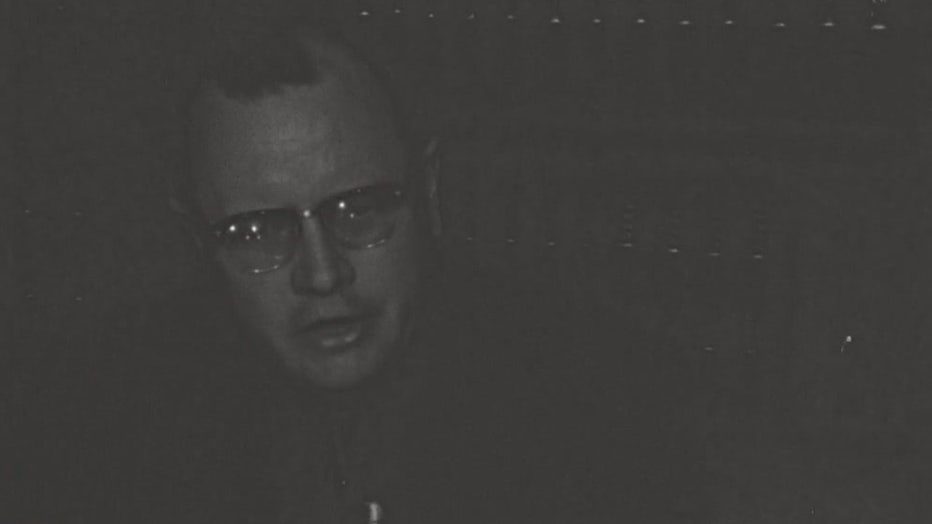
Sydney Carlton, Mississippi Defense Attorney
"We believe in tending to our own business down here," Sydney Carlton, Mississippi Defense Attorney said. "And a result of the NAACP and their activities in trying to make something big out of just an ordinary criminal affair in Mississippi," Carlton said in the archival footage.
What Carlton referred to as an "ordinary criminal affair" was the kidnapping, beating, shooting and lynching of 14-year-old Emmett Till. His clients J.W. Milam and Roy Bryant later admitted to committing the brutal slaying.
Emmett Till’s open-casket funeral served as an antibody to the lies being spread about the circumstances of his murder; his unrecognizable face and body led to fainting spells and feelings of hopelessness that are still felt today.
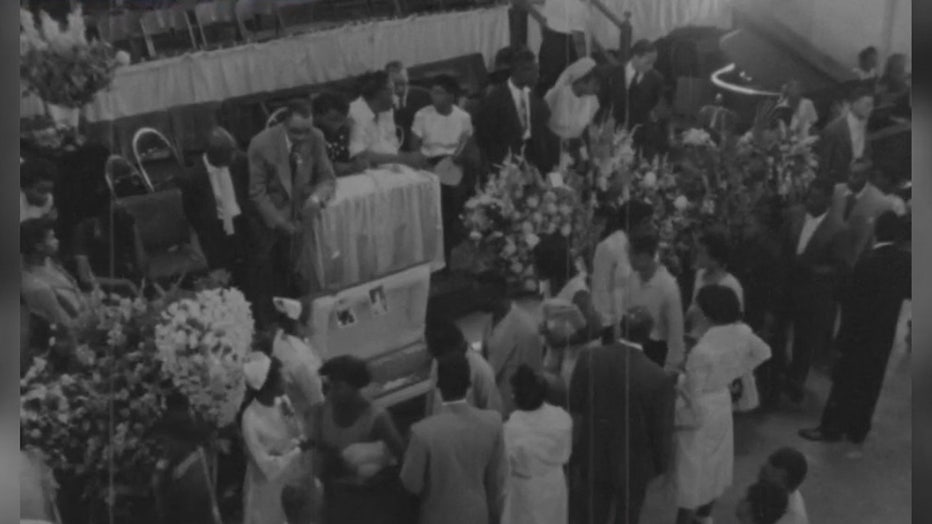
Emmett Till’s open-casket funeral (FOX Archives/FOX Movietone News)
An interactive exhibit that details this part of American history lives on at the Northwest African American Museum. However, the best person to tell the story of what truly happened 69 years ago is the man who lived it and still sees Emmett's face every day.
Now at the age of 85, Rev. Wheeler Parker Jr. shares his whole truth in a one-on-one interview with FOX 13's Sabirah Rayford.
"Our story was not told; they didn’t ask us," Rev. Wheeler Parker Jr. said. "We need not to forget how we got here."
We asked about his relationship with Emmett: they were two cousins who soon became best friends.
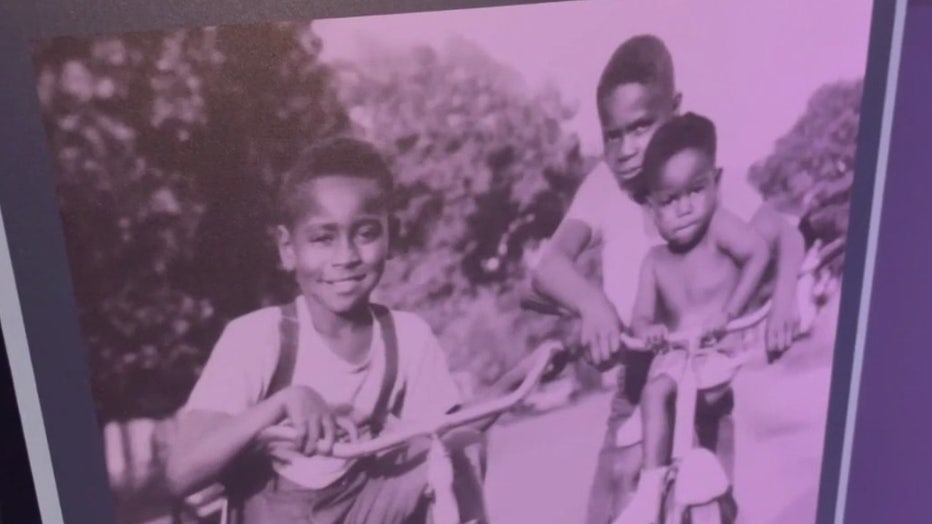
(FOX Archives/FOX Movietone News)
"I moved to Chicago when I was 7 – was going to be 8 shortly, next door to Emmett," Parker responded. "Emmett’s grandmother and my grandmother are sisters."
Parker describes Emmett as someone who had a bright future.
He would have been something. He was destined to be – I say he’s a typical Leo," Parker said with a fond laugh.
Emmett was known as a confident, charismatic and cool Chicago kid; the antithesis of what was expected of a southern Black boy.
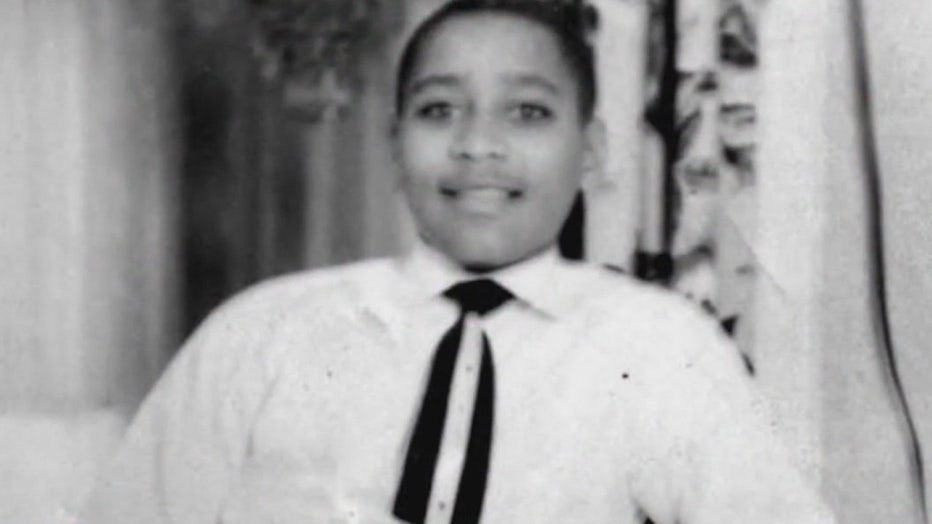
FOX Archives/FOX Movietone News
"When he found out I was going to Mississippi, he couldn’t believe it," Parker recalled. "I’m going to Mississippi, and he ain’t going, and he just had to go. And they said we can’t send you to Mississippi because they knew how the south was, and they knew his fun-loving prankster ways wasn’t going to work down there."
We asked why he would want to go to the South, bearing in mind that racism was alive and rampant back then.
"Hey, you can have so much fun, you go down south, you’re with your uncles, you’re in the country, swimming and running and chasing the snakes out, stealing watermelon," he said looking back with affection.
Rev. Parker was 16 at the time and his uncles were younger than him. He says typically it was elders that kept young children visiting from the north "in line."
"Yes ma’am, no ma’am, yes sir, and you got to be very courteous otherwise you’re going to be in real trouble, real quick," Parker explained.
Rev. Parker said the incident unfolded the moment they left the store that day.
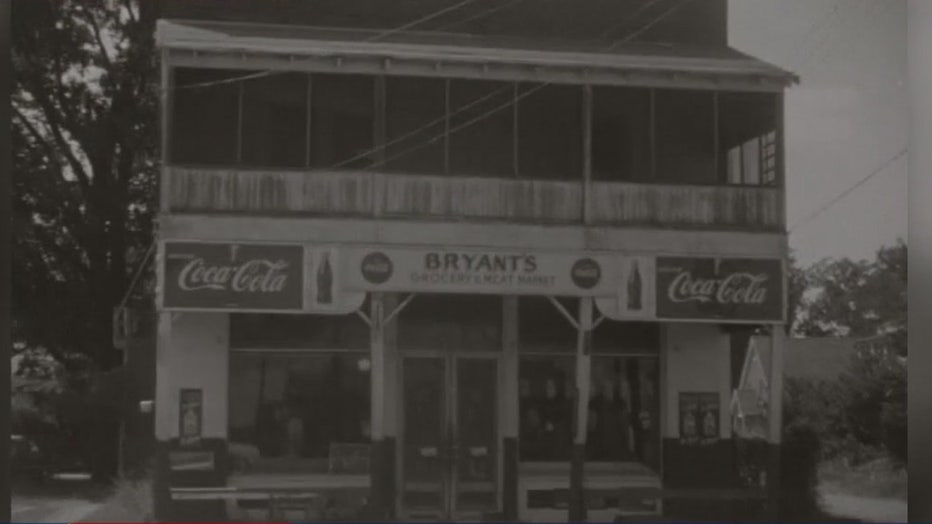
FOX Archives/FOX Movietone News
"I went in the store first, and I remember Emmett coming in, and I said oh my goodness, I hope he’s got his language together," Parker recalled."Ms. Bryant did come out; she came out of the store and when she came out, she was going to the left to our right – and he whistled. He liked to make people laugh and when he whistled we just could of died."
He says they ran to the car in a panic.
Now Emmett is afraid now," Parker said. "He's scared because he sees we are afraid. There's a car behind us and we say, 'Man, they’re after us, they’re after us.' My uncle sped up, and we jumped out of the car, and we went into the cotton field. The car went right on by."
"He begged us not to tell," Parker recalled. "We got there on a Sunday, this is a Wednesday, so we didn’t say anything. Thursday went by. Friday went by, just forgot about it… till Sunday morning."
They were hunted like animals.
"I said these people finna kill us," he recalled. "I knew I had no protection. I couldn’t call anybody, and they are outside, and it’s dark as a thousand midnights. Down south, when the moon didn’t shine, you could not see your hand before your face."
Featured
Emmett Till's story: Seattle museum turns pain into purpose with Juneteenth exhibit
The Northwest African American Museum's Juneteenth exhibit opens a portal to the past, highlighting the story of Emmett Till for the world to see, 68 years later.
"My grandfather didn’t know what bedroom he was in. When they started coming my way walking – and I’m stretching my eyes, shaking like a leaf on a tree, and they entered the bedroom with a flashlight in one hand and pistol in the other. I closed my eyes to die," Parker recalled. "I open my eyes, and they are passing by me. They found him in the third bedroom, and they took him and that’s the last time we saw him alive."
Parker says it was chaotic, and his grandmother pleaded for help.
"She ran next door to try and get the white man to help. He wouldn’t help," he said. "Daylight came, seemed like daylight would never come… oh my goodness."
The next morning, Parker took the first train out of town.
"When I got back to Chicago they took me straight to Emmett Till’s mother's house," Parker said. "They had a vigil. That was Monday night – still two days they haven’t found him."
He says Emmett’s mother Mamie Till never directly asked him what happened.
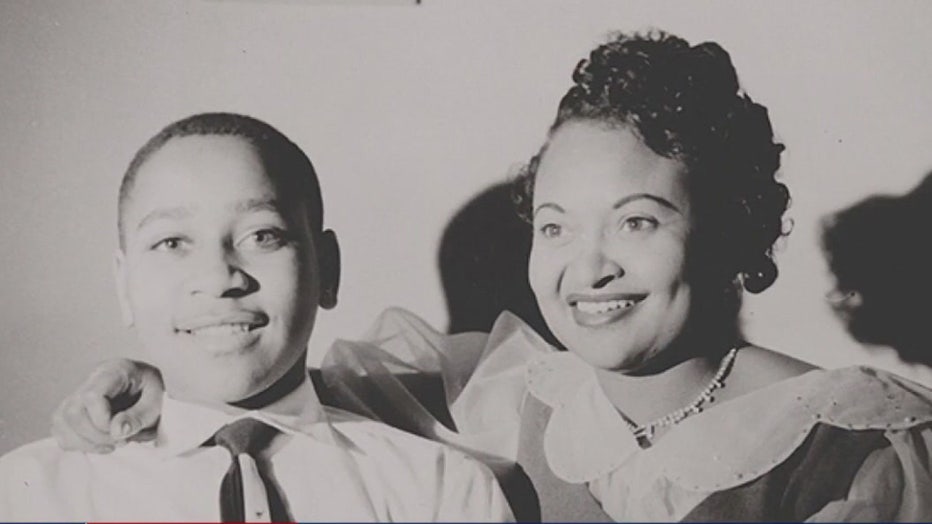
FOX Archives/FOX Movietone News
"I don’t know, but I always felt – I guess survivors’ guilt is what they call it," Parker said. "To be there and to be around her, and I’m there, and her son is not. Even till I was grown, how do you deal with that?"
Emmett’s mutilated corpse was found days later in the Tallahatchie River. Emmett’s mother, Mamie, decided the world would see the horrific truth. Holding an open casket viewing for five days – changing the trajectory of the Civil Rights Movement. But justice for Till and his family wouldn’t come.
Roy Bryant and J.W. Milam were charged and then acquitted of murder by an all-white jury.
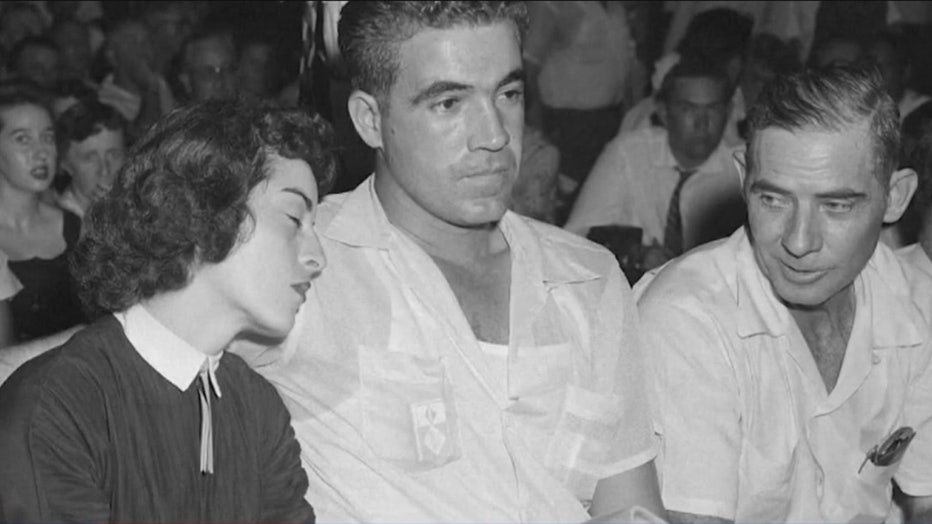
FOX Archives/FOX Movietone News
"I remember reading it at 16-years-old and that’s what I had to live with," Parker recalled.
"Misquotes," asked FOX 13's Sabirah Rayford.
"That’s what they are saying, that’s what they’re writing. He got what he deserved. 1955 the N**** got what he deserved," Parker said.
He said Carolyn Bryant’s false accusations of sexual assault made it even more painful.
"It’s painful, it was hurting. It was a little while before we heard that. We knew he whistled because we were right there, but he didn’t touch her," Parker said. "I was in there with him. Nothing happened. Simeon was in there. Nothing happened. But then this gives validity to it. Justifying what they did to him."
"How many Emmett Tills do you think there really are in history," Rayford asked.
"Oh, my goodness, just beaucoups of them.," Parker said. "Mississippi is only one state and had 500 lynchings. All states had a lot of lynchings. All of them down there – they took the law into their own hands."
Rev. Parker wants it to be known they also had allies, like Robert Smith III.
"Mr. Smith and another guy said I’m going to prosecute," he recalled. "You could see the fear in his face."
"I talked to his son, Jak Smith, he lives down in Tupelo now, and he said his daddy did the right thing, but it was not popular," Parker recalled. "His dad got the same threats, same treatment that Blacks got. They had to have the state police at their house. We need to include that more."
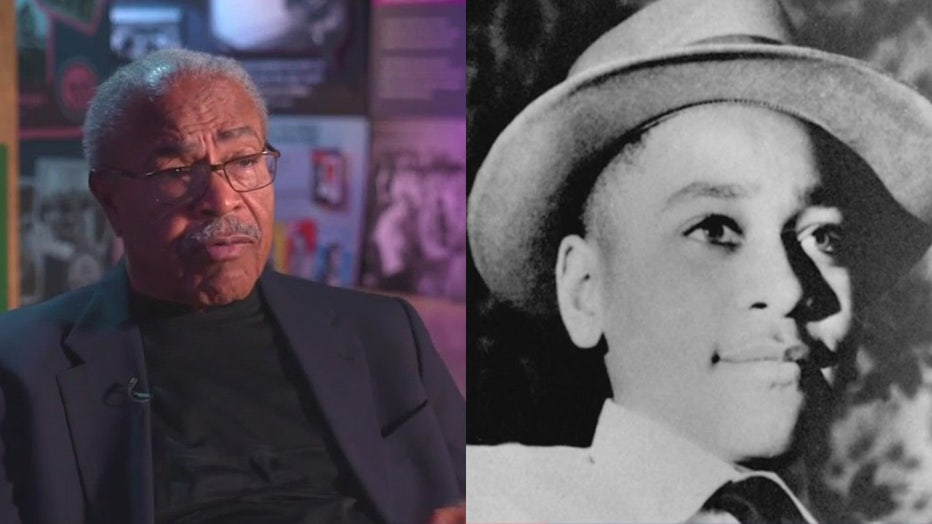
FOX Archives/FOX Movietone News
It took decades for Rev. Parker to find his voice and speak his truth. He eventually became a reverend, which helped, but he says it was Till’s mother, Mamie, who really made the difference.
"Before she died, she asked me to – she said ‘I want you to carry this on.’ I said okay, but what can I – I felt so helpless," he recalled. "I said, ‘I will’, not knowing I’m going to get the exposure like with you."
Rev. Parker says it still amazes him how far we’ve come as a nation in his lifetime. Though he’s still aware that like any other disease, the compounds of racism might go dormant, but hasn’t proven to be fully eradicated.
"God has a way in time bringing things out," he said.
"What would you say to Emmett, if you could tell him anything," Rayford asked.
"I’d say boy, I did my best," he said. "I gave it my best shot. I wish you were here. You’d be – I’m 85 – you’d be 83 now."
MORE NEWS FROM FOX SEATTLE
Viral TikTok sends Snohomish, WA coffee stand into a frenzy
Former WA prosecutor indicted in King County Jail drug smuggling ring
Auburn, WA woman found alive in Mexico after reported missing on Oct. 13
Teen charged in Covington crash that killed 21-month-old
Everything to know about WA's 2024 initiatives on the Nov. ballot
Glacier Peak's critical monitoring delayed. What this means for WA residents
Closing arguments heard in WA case against Kroger-Albertsons merger
To get the best local news, weather and sports in Seattle for free, sign up for the daily Fox Seattle Newsletter.
Download the free FOX Seattle FOX LOCAL app for mobile in the Apple App Store or Google Play Store for live Seattle news, top stories, weather updates and more local and national coverage, plus 24/7 streaming coverage from across the nation.


